The NFC is a crowded mess of talented teams. There are five whose playoff chances have basically gone down the drain. Of the other 11 teams, two -- the Rams and Saints -- have basically locked up a playoff spot. The other nine teams are competing for four berths into January football. There are three teams each in the NFC East and NFC North that could either host a home playoff game in the wild-card round or watch the wild-card round at home after missing the playoffs.
With some help from ESPN's Football Power Index (FPI) projections, let's run through those 11 teams by looking at what they did Sunday and what it means for their postseason path to come. We'll begin with the NFC contender that suffered what looked to be the most bitterly disappointing loss of the weekend until we got to Sunday night:
Jump to a team:
ATL | SEA | DAL
PHI | GB | WSH | MIN
CAR | CHI | NO | LAR
The Deep Outsiders
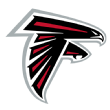
Atlanta Falcons (4-5)
FPI playoff chances: 23.0 percent
The Falcons slipped on the banana peel. Their three-game winning streak came to an end Sunday in Cleveland, as Baker Mayfield posted a perfect passer rating in the first half and Nick Chubb tacked on a 92-yard rushing touchdown after halftime for a 28-16 victory. The loss drops the Falcons below .500 in a wild-card race in which the No. 5 and No. 6 seeds will likely need 10 wins to even start worrying about tiebreaker possibilities.
To pull that off, the Falcons will need to go 6-1 down the stretch while maneuvering road trips to New Orleans, Green Bay and Carolina. They have what amounts to an elimination game against the Cowboys next week at home, but the Falcons have shown little ability to stop offenses of any consequence this season. Dan Quinn's defense ranked 30th in the NFL in DVOA heading into the Browns game and could fall to 32nd after surprisingly competent performances from the Raiders and Buccaneers on Sunday.
As much as the injuries to Deion Jones and Keanu Neal have hurt a Falcons defense built on speed and ranginess, this defense was overrated heading into the year. The Falcons ranked 22nd in DVOA last season, with their eighth-placed finish in points allowed a product of facing the fewest possessions in all of football. Both the Falcons' offense and their defense tended to play out long possessions, so the Falcons faced just 164 drives last season, six fewer than any other team in the league and 20 drives below the league average of 184.
The Falcons were 20th in points allowed per drive last season. This season, facing more drives per game and with a more explosive offense, the Falcons are 30th in points allowed per possession. They're 29th in sack rate, and it's hard not to wonder where the Vic Beasley Jr. who racked up 15.5 sacks in 2016 and looked to be the league's next great pass-rusher has gone. Beasley, who was supposed to be an every-down pass-rusher again this season, has just one sack in nine games. The Falcons did not sack or even knock down Mayfield once on 20 dropbacks Sunday.
As a result, we're seeing Falcons defenders simply end up overmatched one-on-one. Cornerback Robert Alford, signed to a four-year, $38.6 million deal in 2016, has been a liability all season. Mayfield on Sunday extended a play and found Rashard Higgins for a 28-yard touchdown, conservatively the fifth touchdown Alford has allowed in coverage this season. A Mayfield play-fake took three Falcons out of the play and set up Chubb for an easy touchdown. Chubb's 92-yard score came when the Browns were able to get the rookie back matched up one-on-one against backup safety Damontae Kazee, who couldn't make the open-field tackle.
The Falcons have been bailed out and kept afloat all season by an offense that led the league in win probability added per game from Weeks 2-9. On Sunday, when the offense was just ordinary and came up scoreless on one of its three red-zone possessions, the Falcons had no answer. It would take MVP-caliber play from Matt Ryan to carry this team to the postseason on a second-half hot streak. Even that might not be enough.
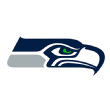
Seattle Seahawks (4-5)
FPI playoff chances: 29.2 percent
In a former life, the Legion of Boom-era Seahawks seemed to pull out the games Seattle lost over the past two weeks. The team that won the Fail Mary game stripped Calvin Johnson at the 1-yard line in a three-point game with 1:51 to go and launched that comeback against the Packers in the NFC Championship Game doesn't drop the pass David Moore dropped in the end zone against the Chargers last week. You feel like they probably come up with a better drive than the one that stalled out at the 35-yard line against the Rams on Sunday. You don't need me to tell you there were close games that team didn't pull out, but it had as many remarkable comebacks over a five-year stretch as any team west of Foxborough.
This version of the Seahawks seems to have the capacity to surprise us without accomplishing anything meaningful. They can run the ball! Brian Schottenheimer doesn't look over his head! Germain Ifedi has stopped holding anything that briefly passes across his vision! The pass defense has managed to survive -- and even thrive, given that they ranked fifth in DVOA heading into this week -- without Kam Chancellor, Richard Sherman and Earl Thomas! Those are all concepts that might have seemed laughable before the season, and yet they're all true to one extent or another.
Even given those truths, has it left the Seahawks in a positive place? Seattle is 4-5, and its four wins are against the Cowboys, Cardinals, Raiders and Lions, a list that might include three of the five worst teams in football. The Seahawks ran the ball 34 times for a staggering 273 yards against the Rams on Sunday, which was designed to keep Jared Goff & Co. off the field. But the Rams scored on seven of their first eight meaningful drives. Seattle was still running the ball down 12 points with five minutes to go.
Pete Carroll will be happy to see the Rams off the schedule for the remainder of the season, but his team still has the Packers, Panthers, Vikings and Chiefs to come over the next six weeks, along with a home-and-home with the 49ers. The Seahawks' turnover rate is unsustainable; they forced takeaways on 20 percent of opposing drives through Week 8, which was the second-highest rate in the league over that time frame, but they failed to turn over the Chargers or Rams over the past two weeks. Seattle has nabbed 16 of the 24 fumbles in its games, an unsustainably high recovery rate. Wilson's fumble in the fourth quarter on Sunday was a bridge too far. The Seahawks' margin for error against good teams is too small to win consistently this season.
The Hopefuls

Dallas Cowboys (4-5)
FPI playoff chances: 30.4 percent
I'll admit that I had the Cowboys ticketed for the Deep Outsiders section before Sunday night's game against the Eagles, one that seemed like it could end Jason Garrett's nine-year reign in Dallas. Things change. The Cowboys rode an outstanding defensive performance and a Todd Gurley-esque performance from Ezekiel Elliott to top the Eagles 27-20 and throw the NFC East race into further chaos.
It was a surprise to see this from a Cowboys defense that couldn't stop the Titans for most of their Week 9 loss. The Cowboys ranked 26th against the pass in DVOA before Sunday night, and while Carson Wentz finished the game with 360 passing yards, much of that came in the second half with the Cowboys leading. Dallas' defense did enough in the first half to establish a 10-point lead, which ended up as more than the margin of victory.
Is what the Cowboys did on defense in this game sustainable? Probably not. Rookie Leighton Vander Esch, who had his best game as a pro, dropped into coverage and caught a Carson Wentz pass most linebackers would merely be able to tip away or into the air for a huge pick. On the final drive, he would overcome two Eagles blockers on a Corey Clement screen to turn a likely first down into a 5-yard loss.
The Cowboys held up on a third-and-1 and then on the subsequent fourth-and-1 on their own 20-yard line, a rare stuff against an Eagles offense that had been 13-for-16 on fourth-and-1 since the start of 2017. Chidobe Awuzie back-fisted away what should have been a long completion to Alshon Jeffery down the sideline. Then, in the third quarter, Jeffery settled a skinny post route in the end zone instead of continuing through the pass, resulting in an incompletion on a route Zach Ertz seems to score on every single week.
Those plays aren't flukes, but it's fair to say they're a mix of the Eagles having a sloppy game on offense and some difficult-to-sustain big plays on defense. What was more promising to me, honestly, was what the Cowboys did on offense.
Early in this game, Dak Prescott seemed terrified to make a decision. He was double-clutching passes in the pocket. His footwork was inconsistent, leading him to sail an easy out on third down. He missed Amari Cooper for what should have been a long play and possibly a touchdown. Dallas' success was coming on screens, checkdowns and Eagles mistakes, such as when Ronald Darby tried to shoulder-check Cooper on a third-down crossing route and Cooper shrugged him off to make a first down.
On the final drive of the first half, with the Cowboys leading 6-3, Prescott took a bad sack on first down and then seemingly settled in. The Cowboys picked up third-and-15 on a screen to Michael Gallup, then Prescott hit Cole Beasley and Allen Hurns on deep passes to the right side of the field to set up a sneak where Prescott might as well have told the Eagles he was keeping the ball. It didn't matter when an injured Zack Martin caved in the interior of the Philadelphia defensive line. From that drive on, Prescott played much better.
Again, you might blame that on the injuries the Eagles had in the secondary, but it's a positive sign for the Cowboys. The trade for Cooper might have been too aggressive of a long-term decision, but it's helping this offense. He can separate against man coverage, which is a huge upgrade for a scheme that doesn't do enough to create picks and easy throws for their quarterback. Every other wideout in this scheme suddenly has less to do, which makes receivers such as Beasley, Gallup and Hurns look better. It also helped unlock Elliott on Sunday, as Dallas' best weapon ran for 151 yards and threw in 36 receiving yards on six catches.
The Cowboys are alive for now. They need to beat the Falcons on Sunday to get back to .500 and eliminate a possible wild-card tiebreaker contender. If they can pull that off, things get interesting. Dallas has a critical three-week homestand with a Thanksgiving game against Washington, a Thursday night game against the Saints, and a mini-bye before their Dec. 9 rematch with the Eagles. Winning three of those four games would get them to 7-6 with the Colts, Buccaneers and Giants waiting at the end of their slate. I wouldn't count on it happening, but then again who saw this win coming?

Philadelphia Eagles (4-5)
FPI playoff chances: 31.7 percent
The Eagles, on the other hand, have to feel crushed. They might have come into Week 10 imagining a scenario in which they would leave tied for first in the NFC East with a win over the Cowboys and a Washington loss in Tampa. Instead, the Eagles are in third place in the NFC East, down two games on Washington and with a possibly-important tiebreaker loss to the Cowboys on their résumé.
There's no time for the Eagles to regroup and feel sorry for themselves, though, given that they're thrust into a critical road trip to New Orleans for a game against the streaking Saints, who have won eight straight games. Later this season, they have to travel to Los Angeles to play the Rams. The problem with this loss is that the Eagles now have to beat one of those two juggernauts on the road to get to 10 wins.
Can Philly make it into the postseason with nine wins? In the NFC East, it's possible. Its schedule outside of those two terrifying road games isn't awful. It has a home-and-home with Washington still to come, which helps tiebreaker chances significantly. The Eagles get rematches against the Giants and Cowboys, the latter coming in Dallas, and a home game against the Texans on Dec. 23. The Eagles can run the table against those teams. The chances of them going through those five games without slipping up at least once like they did against the Cowboys on Sunday, though, aren't great.
Injuries might be the biggest culprit this season, but it's not the typical story we see with year-after-Super-Bowl teams struggling. Usually, we see teams that were incredibly healthy during a deep playoff run suffer from regression toward the mean with injuries and decline as a result. This year's Jaguars are a good example of that phenomenon.
Instead, the 2017 Eagles were the rare team that suffered through meaningful injuries and overcame them anyway. They lost Darby in the opener and got by with Rasul Douglas before Darby came back. Key contributors such as Darren Sproles, Jordan Hicks and Jason Peters hit injured reserve, but the Eagles found answers. Most famously, of course, they managed to replace Wentz with Nick Foles and won the Super Bowl anyway.
Most teams can't pull that off, and that might include the 2018 Eagles. Their offensive line hasn't been as effective as last year's unit, with Peters declining at age 36, Stefen Wisniewski losing his job, and Lane Johnson struggling for stretches before missing Sunday's loss with a sprained MCL.
Their secondary has been a bigger concern, and after losing Darby to a knee injury last night, it's not getting any better. Coordinator Jim Schwartz has struggled to replace Rodney McLeod at safety, as converted corner Avonte Maddox went from replacing the aging Corey Graham to instead subbing in for McLeod. Safety Tre Sullivan, whose most notable contribution to the game was serving as Elliott's human hurdle, took 21 defensive snaps.
When second-year corner Sidney Jones went down with an injury, the Eagles signed Dexter McDougle off of the street and immediately inserted him into the starting lineup in lieu of playing Douglas. McDougle played 86.2 percent of the snaps over the next two weeks before struggling against the Jags in London and losing his roster spot. On Sunday, when Darby went down, the Eagles turned to Chandon Sullivan, who was playing his second career game. They were able to get by with Douglas and a career year from inexpensive veteran Patrick Robinson in the slot last season. The secondary hasn't been able to easily right itself this season. It's not too late for the Eagles to do the same thing, but their margin for error is approaching zero.
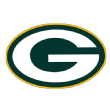
Green Bay Packers (4-4-1)
FPI playoff chances: 35.6 percent
Beating a traveling Brock Osweiler isn't exactly a proclamation of grand intent, but beating Miami has to be the Packers' best win of the season, right? Green Bay's other three wins were a blowout over Josh Allen and the Bills, and last-second comeback victories over the Bears and 49ers. They're 0-4 on the road, with losses to the Lions and Washington amid higher-profile defeats to the Patriots and Rams.
The Dolphins averaged nearly 6.0 yards per carry without either of their starting tackles, and they had seven drives make it to Green Bay's side of the field, but those drives generated only 12 points. The Packers hadn't exhibited any sort of red zone dominance before this week, and they came up with one early stop when a snap somehow made its way over the 6-foot-7 Osweiler's head, but they'll take it.
What's more exciting has to be the workload given to Aaron Jones, who carried the ball 15 times for 145 yards and two scores as the Packers ended up with 195 total rushing yards Sunday. To put this in context, it was just the 13th time in an Aaron Rodgers start over the past five years that the Packers generated more win expectancy running the football than they did with their passing game. It was the Packers' third-best rushing performance by win expectancy with Rodgers under center since the beginning of 2014, behind the opening game of the 2015 season and the Week 5 victory over the Cowboys last season, when the team's leading rusher was ... Aaron Jones.
While the Packers understandably have concerns about keeping their star quarterback healthy and don't want to put Jones on the field if he's a liability in pass protection, they might not have the offensive firepower with their passing game to justify keeping Jones off the field. Since the beginning of 2017, Rodgers' QBR has jumped from 57.2 with Jones on the sideline to 66.1 with the former UTEP back on the field. While Rodgers is sacked more frequently in those situations, his sack rate makes a mild jump from 7.2 percent with Jones off the field to 7.7 percent while Jones is in the backfield alongside the future Hall of Famer. It's a tradeoff the Packers should be willing to take.
Defensive coordinator Mike Pettine has delivered in revitalizing the pass rush, as the Packers lead the league in sack rate, although edge rusher Nick Perry was sidelined by a knee injury Sunday. The secondary remains a work in progress, given that the Packers traded away Ha Ha Clinton-Dix at the midseason deadline and cut mooted replacement Jermaine Whitehead after the second-year safety was ejected for slapping David Andrews in the head in New England. They've moved 35-year-old corner Tramon Williams to safety and given free-agent addition Bashaud Breeland starter snaps. The former Washington corner made his debut against the Patriots in Week 9 and was playing just about every snap before going down with a groin injury against the Dolphins on Sunday.
Sunday is the blueprint for how the Packers will want to win games the rest of the way. Balance is overrated and a product of winning as opposed to a cause, but Green Bay is running an antiquated offensive scheme with one steady receiver in Davante Adams. Rodgers is still great -- he has one interception in nine games, and even that was on a pass that Jimmy Graham volleyball set into Jordan Poyer's hands -- but he has taken over quarters as opposed to full games.
Get the running game going and create takeaways, and the Packers could be in business. They had the fifth-easiest remaining schedule in the league coming into the Dolphins game, and while they still have to travel to play the Bears and Vikings, they get home games against the Cardinals and Lions and a road trip to play the Jets. There are plenty of winnable games left on this schedule. Expecting a "Relax 2.0" run might be too much, but there are reasons to be optimistic.
The Favorites

Washington (6-3)
FPI playoff chances: 50.0 percent
The week couldn't have gone much better for Washington. It won in Tampa. Nobody else on its injury-riddled roster appeared to go down hurt. The Eagles lost to the Cowboys, over whom Washington already holds a head-to-head tiebreaker. The Falcons, who would hold a possible wild-card tiebreaker over Washington, lost in Cleveland. Did I mention nobody else suffered a significant injury?
Now, if you're asking whether Washington played well, I can't do you any favors. Facing a defense that has turned its average opponent into Drew Brees this season, Alex Smith went 19-of-27 for just 178 yards with a touchdown and three sacks. A line missing three starters, including two Pro Bowl-caliber linemen, helped Adrian Peterson to just 68 rushing yards on 19 carries. Washington sealed the game by scoring 10 points on a pair of short fields in the fourth quarter.
It won this game because the Bucs had what might be the most disastrous red-zone performance in league history. Tampa, which racked up 501 yards, made five trips into the red zone (and a sixth to the Washington 28-yard line). The final score was 16-3, so you can guess things didn't go well. The typical NFL team has averaged five points per red-zone trip so far this season. The Bucs averaged 0.6 points per red-zone trip on Sunday.
To put this in context, ESPN Stats & Information has red-zone data going back through 2001. If we plug in each year's average points per red-zone trip and get an expected value for what each team "should" have scored given a certain number of trips to the red zone in a game, the Bucs just produced the worst red-zone performance of the 21st century at 21.9 points below expectation. The second-worst game of the season was when the Jaguars scored a lone touchdown in five red-zone trips against the Chiefs in Week 5, at 17.9 points below expectation.
Washington can't take a ton of credit for doing great things on defense. This was a Bucs special. Ryan Fitzpatrick airmailed an open receiver for an interception to end the first drive. After Washington allowed a second-and-20 conversion to get into the red zone, Fitzpatrick passed up an opportunity to finish his scramble by running two yards forward for the first down and instead ran laterally on a drive that ended in a missed field goal:
Ryan Fitzpatrick did not run for a first down on this play. pic.twitter.com/gYnRD0nTco
— Bill Barnwell (@billbarnwell) November 12, 2018
The third drive resulted in a successful field goal. In the second half, after Peyton Barber converted a third-and-1 to get the Bucs into the red zone at the 20-yard line, the Tampa stadium operator sensed that the drive had peaked and set off a cannon. He wasn't wrong: The Bucs gained two yards before a bad snap pushed them backward, at which point Chandler Catanzaro missed a second field goal. On the fifth drive, Washington had a Fitzpatrick strip-sack around Donovan Smith washed away by holding on Josh Norman, and after Mike Evans dropped a would-be TD, Fitzpatrick was strip-sacked for a second time when Smith was again slayed by Preston Smith.
Another drive ended when Fitzpatrick tried to throw a lateral to the sideline while he was 10 yards past the line of scrimmage and threw a forward pass instead. Dirk Koetter noted after the game that he had stripped offensive coordinator Todd Monken of the playcalling duties and had called the plays himself on Sunday, which is like when your dog tears up a paper towel roll while you're gone and then stands proudly besides it when you walk back in the door.
Jay Gruden suggested after the game that a win is a win and that style points are for fantasy football, which both hits and misses the point. Gruden is likely aware that Washington doesn't need to win many more games to have a great shot of making it into January. It is 6-3 and still has a home game against the Giants to come. If Washington can make it to nine wins and avoid an Eagles sweep, it will probably do enough to win the division.
At the same time, teams don't need to win with big plays and beautiful touchdowns, but Washington can't pretend to imagine that it can continue to play games like this and win. There's nothing sustainable about allowing the Bucs to march up and down the field without scoring at all. Bend-but-don't-break defense is one thing. This was bend-and-assassinate defense. The Texans are a flawed team, but we'll get a much better sense of where Washington stands after its rash of injuries when Houston comes to town next week.

Minnesota Vikings (5-3-1)
FPI playoff chances: 59.8 percent
The Vikings, who had their bye this week, have the toughest stretch of their season -- and arguably of any team in the league -- coming up over the next four weeks. They face the Bears in Chicago on Sunday night, host the Packers the following Sunday night, then finish up with road games against the Patriots and Seahawks. The best defense in football, a visit from an arch-nemesis, and a December swing to two of the toughest places to play in the NFL.
FPI expects the Vikings to win 1.7 of those games, and if we round up and project them to go 2-2, Minnesota would be well-positioned to finish strong and make a return trip to the postseason at 7-5-1. If you're looking for an all-or-nothing approach, consider that FPI thinks Minnesota's chances of losing all four games is 9.7 percent, more than three times their odds of winning all four, which come in at 3.1 percent.
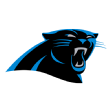
Carolina Panthers (6-3)
FPI playoff chances: 68.8 percent
The Panthers have flipped. Since Ron Rivera's squad had its breakout season in 2013, the Panthers have been a team built more upon its defense than its offense. They've placed higher in the win expectancy rankings in defense than on offense four out of the past five seasons. The exception is their 15-1 season in 2015, when Carolina was great at everything and ranked second in WPA on offense and third in defensive WPA.
After a 52-21 shellacking at the hands of the Steelers on Thursday night, though, the Panthers find themselves in unfamiliar territory. Carolina is 10th in the league in offensive WPA and a middling 18th on defense. DVOA hasn't yet been calculated for Week 10, but the Panthers were fifth on offense and 14th in defense heading into the Steelers game, and it's safe to say that the Football Outsiders' algorithm isn't going to look kindly upon their efforts against Pittsburgh. Right now, this is a team built around Cam Newton and Christian McCaffrey, not Luke Kuechly and Kawann Short.
I have two pieces of good news for Panthers fans. One is that you don't have to play the Steelers again until 2022. (Their previous encounter was in 2014, when the Steelers beat the Panthers 37-19 in a game in which both Le'Veon Bell and LeGarrette Blount topped 115 rushing yards. JuJu Smith-Schuster was an 18-year-old freshman at USC at the time.)
The other is that Carolina's biggest defensive problem is likely to clear up. The Panthers are allowing teams to score an average of 6.0 points per red-zone trip, the second-highest average in the league. Only Tampa has been worse in the red zone. Bad defenses tend to allow a lot of red-zone trips and plenty of points when offenses get to the promised land, but the Panthers are a good defense with a red-zone problem. Carolina is allowing teams an average of only 2.7 red-zone possessions per game, the fourth-best mark in the league.
I wouldn't count on the Panthers giving away six points per red-zone trip the rest of the way, and if they don't, their defense is going to look more formidable. The next step for Carolina is to find a secondary pass-rusher behind Mario Addison, who has 7.5 sacks on just eight knockdowns this season, an unsustainable total. The seemingly ageless Julius Peppers has faded some at 38, while longtime end Charles Johnson retired. Short is a natural candidate to step up after recording just two sacks through nine games, but Carolina might also turn to 26-year-old European rookie Efe Obada, who has had six knockdowns in limited playing time.
I lied. One more source of good news for Carolina: Their schedule over the next month could be a piece of cake. Three of their four games are on the road, but the Panthers will travel to face the Lions, Buccaneers and Browns, while their home game is against the Seahawks. Carolina finishes with a difficult Saints-Falcons-Saints sandwich, but it might get there holding a 9-4 or even a 10-3 record.
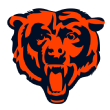
Chicago Bears (6-3)
FPI playoff chances: 71.0 percent
If the Falcons slipped on the banana peel, the Bears crushed it into an unrecognizable pulp. Chicago stomped Matt Patricia and the Posture Team on Sunday, going up 26-0 in the second quarter and leading 34-10 after three before the Lions pieced together a pair of meaningless touchdown drives in fourth-quarter garbage time. The Bears would have hit 40 were it not for a bizarrely bad day from Cody Parkey, who knocked two field goals and two extra points off the uprights.
The Lions had no answer for Mitchell Trubisky and the Bears' passing attack. Detroit's pass defense isn't typically very good, given that it ranked 30th in DVOA heading into the game, but it was absolutely hopeless with star cornerback Darius Slay sidelined by a knee injury. Allen Robinson torched DeShawn Shead, Quandre Diggs and Nevin Lawson for big plays, including two quick slants for huge gains out of the slot and a 35-yard score on a fade down the sideline. Anthony Miller had 100 yards and a touchdown on a pair of busted coverages. Trubisky added a touchdown on a quarterback draw. It was his best game since the six-touchdown shellacking of the similarly-brutal Buccaneers pass defense in Week 4.
You might look at this three-game winning streak and chuckle about how the Bears have beaten three subpar football teams in the Jets, Bills and Lions, but winning those games by a combined 58 points is a good sign for this team's actual underlying level of play. Impostor teams tend to lose focus and drop one of those games or narrowly win by a few points when the other team makes one critical mistake. The Bears are doing exactly what they're supposed to do when they're playing bad football teams. Matt Nagy's team is establishing that they're on a different level.
What's next will be tougher. Trubisky just won his first career divisional matchup -- he's now 1-6 -- but he can add to the bunch with four more NFC North matchups to come over the final seven weeks. The obvious crucial opponent in that bunch is the Vikings, who still have a home-and-home to come with the Bears, starting Sunday in Chicago. If the Bears pull that out, they'll be 7-3 with what amounts to a two-game lead on the 5-4-1 Vikings given the tiebreaker. FPI also thinks the Bears are slight favorites to win their two road games against the Lions and Giants, too; if they can sweep those three games and make it to 9-3, they'll likely need to win just one of their final four games against a tough slate to make it to the postseason.
The Elite
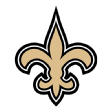
New Orleans Saints (8-1)
FPI playoff chances: 98.9 percent
I have the least to say about the two teams atop the NFC, in part because they're not really in the same playoff picture. The Panthers are projected to win 9.7 games by FPI, the third-highest total in the NFC. The Saints are projected at 12.3 wins. The Rams, who are coming up in a moment, are at 13.3 wins. It would be a shock if the Saints and Rams are not taking the first week of January off to rest up. Their playoff spots are not at risk barring an injury to Jared Goff or Drew Brees.
If you were expecting a letdown game from the Saints after a roller-coaster victory over the Rams, well, you were the one let down. Brees went 22-of-25 for 265 yards with three touchdowns against the Bengals, as the Saints ran the ball for 47 times for 244 yards and three scores, and the defense had more trouble with Jeff Driskel than with Andy Dalton, who threw two interceptions in a game in which Cincinnati failed to convert a single third down.
What's promising for the Saints is that their defense is coming back to life. After a brutal start to the season in high-scoring games against the Bucs and Falcons, the New Orleans defense ranks 10th in win probability added since the start of Week 4. The Saints rank ninth in opposing passer QBR over that time frame despite opposing receivers posting a league-low drop rate of 0.9 percent. The defense might not hit the peaks of a year ago, but it doesn't have to be great. Brees and the 10th-best defense in football can win 13 games per season.
Sean Payton's team holds the tiebreaker over the Rams if they both end up as one-loss teams, but they rank behind the Rams in terms of postseason projection for a few reasons. One is that the Rams are playing in a much easier division and already hold a guaranteed tiebreaker over their only competitive rivals in the West, the Seahawks. The Saints still have to contend with a home-and-home against the Panthers, who are two games behind. Second is that the Rams already banked an extra win at 9-1, while the Saints still have to beat another team to get to that mark.
Third is that the Saints face a tougher schedule over the rest of the way. The Rams have the would-be Game of the Year coming up against the Chiefs on Monday Night Football in Week 11 in Mexico City, and they still have a road game against the Bears and a home game against the Eagles to come, but their other three games are against the Lions, Cardinals and 49ers.
The Saints also have a home game against a desperate Eagles team this week, but their schedule has more competitive opponents. New Orleans has home games against the Steelers and the Falcons, who would like nothing more than to spoil things for their rivals. Road trips to Dallas and Tampa shouldn't scare Brees, but the Saints do have a home-and-home with the Panthers in December.
Honestly, while the Saints have a tougher schedule, the difference between the 1- and 2-seed in the NFC is more likely to come down to a key player getting injured or a poorly timed bad game, regardless of opponent. I also think home-field advantage means less with these two teams than a typical matchup when you consider that the venue for a would-be playoff game would either be at the Superdome or in the warm climate of Los Angeles. The Saints would rather play in New Orleans, of course, but it's not like the loser will have to travel to play in Green Bay or Seattle.

Los Angeles Rams (9-1)
FPI playoff chances: 100 percent
FPI sees the Rams' chances of both making the playoffs and winning the West at 100 percent after Sunday's win over the Seahawks. Los Angeles has a 4.5-game lead over the Seahawks in the division with the tiebreaker in hand and six games to go. It would take an absolutely historic collapse for the Rams to lose their hold. Even if Goff and Todd Gurley were to suffer season-ending injuries in Mexico City, I think the Rams have done enough to lock up their second straight division title.
The Rams did suffer a meaningful loss on Sunday against the Seahawks when Cooper Kupp went down with what appears to be a serious knee injury, but in thinking about how they'll finish out versus the Saints, I'm wondering more about whether their defense is ever going to turn the corner and get to where it was a year ago. The Saints are showing signs of improvement on defense.
As of right now, the changes the Rams made in swapping out the likes of Alec Ogletree and Trumaine Johnson for Ndamukong Suh and Marcus Peters haven't delivered a better product. The Rams ranked sixth in defensive DVOA last season, but heading into Week 10 they were 16th on defense. A year ago, Wade Phillips' defense was fifth in win probability added. After 10 weeks, it is 22nd in the same category.
Teams have a comfortable blueprint for how to play on offense against the Rams. They're going to run the ball, just as the Chargers, Vikings, Broncos, Saints and most notably the Seahawks have over the past few weeks. Running the ball is going to keep Goff & Co. off the field while letting teams dictate the pace at their own terms depending on game situation. The problem is that the Rams usually score so quickly and get ahead early enough that teams can't keep running the football and have to throw.
At the moment, the Rams seem to get by on big plays from stars like Aaron Donald to create stops and takeaways. Donald had his typical huge game against the Seahawks, racking up 2.5 sacks, three tackles for loss and five quarterback knockdowns. Suh threw in a half-sack and three knockdowns of his own. They're both impossible to game plan for, in part because Donald and Suh move across the defensive line to try to attack mismatches.
The game with the Chiefs, then, could come down to the interior. In the thin air of Mexico City, the Chiefs might go with tempo to try to tire out the Rams' front. Phillips could respond by trying to blow up Chiefs plays through backup offensive linemen. Guard Laurent Duvernay-Tardif is already on injured reserve with a broken ankle, while center Mitch Morse has been out since Week 6 with a concussion. Donald and Suh against backups Austin Reiter and Andrew Wylie is a huge mismatch for the Rams. As much as Kupp's injury might hurt the Rams, the absence of Duvernay-Tardif and Morse could be even more meaningful come next Monday night.
